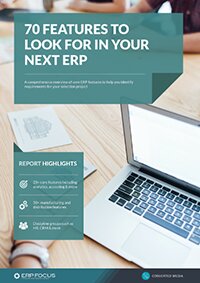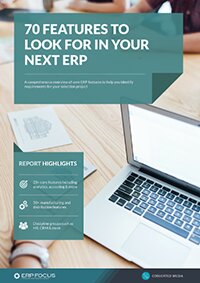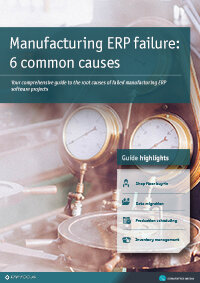Futureproofing your ERP - a complete guide
In many cases, the premise of futureproofing an ERP is like playing Russian Roulette. If you sense that your platform is beginning to age operationally, and consequently its ability to grow appears to be limited, the next question usually becomes, ‘when will your business finally experience that fatal head shot.’
Granted, this level of concern may appear to be illogical from an outside perspective; however for data-centric enterprise managers this kind of business fear is real enough, since any company that uses ERP as a central information mechanism tends to create more, not fewer, operationally critical dependencies over time.
On the other hand, there are ways to marginalize this set of concerns. So to stay with the whole ‘Russian Roulette’ theme, while also helping out a bit, here are three ways to reduce, or entirely eliminate, the potential of facing an ERP futureproofing bullet.
Begin to alter operational management doctrines now
Believe it or not, many ERP systems operate nominally; it’s the way enterprises apply them that create problems. Consider this for a moment, as a systems type, ERP systems have largely been seen as collections of rigid processes that force users to adhere to rules that may, or may not, be palatable to particular operations.
However, over the last fifteen years, various operational methodologies oriented to streamlining ‘the way things are done’ have come to the fore including Agile, and DevOps, along with hosts of secondary support applications such as Docker, Chef, and Puppet. While these configuration-based systems stand-alone, they also integrate nicely with larger core systems including ERP platforms.
This capability allows organizations to leverage current ERP values, while at the same time, allowing for more efficient ‘ways to do things’ organizationally, in addition to the utilization of external processing. Therefore, before you consider more than a cursory look at the cost and effort necessary to buy up when looking to the future, perhaps what you already have will suffice, and instead only need a different slant on things to get the job done more efficiently down the road.
Review, revise and enhance your KPIs
As a practical matter, ERP KPIs are largely frangible business elements, and tend to lose value over time. However, sometimes ERP managers suggest that reduced information values occur due to a system’s maturity, when in fact, the KPI models themselves cause the problem.
Consequently, in the same way that operational methodologies can apply, reviewing and refining existing KPIs can resolve this upset for a lot less money than buying up.
Consider a hybrid configuration
While everyone seems to want to run everything, everywhere in the cloud these days, many mature ERP-driven enterprises don’t like the idea of moving perfectly stable platforms up to the cloud, thereby running the risk of creating new problems that may or may not resolve easily. Nevertheless, stable or not, legacy processes are a fact of life, and today’s cloud technologies do harbor certain operational advantages when compared with older systems.
Consequently, there is a way to have the best of worlds by adopting a hybrid approach to concerns about the future. In this case the on-premise ERP system serves as a core data engine, while most, if not all, other affiliated processing is done in the cloud.
As asserted at the introduction, futureproofing ERP platforms does represent significant risk, if you get it wrong. However, if you first orient yourself to optimizing what you already own and operate, any threat level can be mitigated operational, while at the same time, capital that may be better directed elsewhere will be more plentiful.
Free white paper

70 features to look for in your next ERP
A comprehensive guide to help you identify requirements for your ERP selection

Featured white papers
-

Manufacturing ERP Failure: 6 Common Causes
Get your comprehensive guide to the causes of manufacturing ERP failure
Download
Related articles
-

Top 10 causes of ERP implementation failure (and how to avoid it)
Few people in an organization ever understand how difficult an ERP implementation is, and how a f...
-

CMMC Compliance: What Aerospace and Defense Manufacturers Need to Know
Key insights on CMMC compliance, deadlines, and securing DoD contracts with CMMC 2.0 certificatio...
-

How to conduct a thorough ERP audit
The types of ERP audit, and step-by-step instructions on how to audit your ERP system

